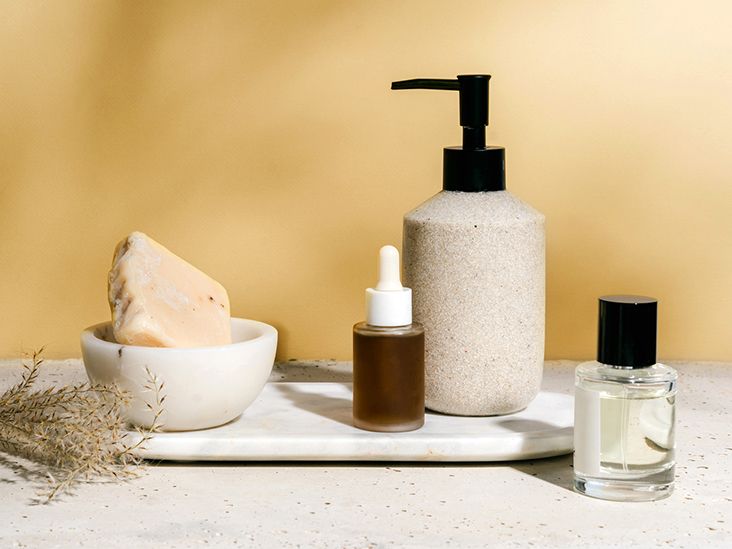Understanding Eczema Flare-Ups: Key Triggers and Management Strategies

Understanding Eczema Flare-Ups: Key Triggers and Management Strategies
Eczema, also known as atopic dermatitis, is a skin condition characterized by symptoms such as redness, intense itching, dryness, and inflammation. While the precise cause of eczema remains unclear, recognizing and avoiding specific triggers can play a significant role in managing flare-ups. Common culprits include skin care products, dietary choices, and hormonal fluctuations. Keeping the skin moisturized is a vital preventive measure that can help minimize episodes.
What Causes Eczema to Flare Up?
The integrity of the skin barrier is crucial in the development of eczema. When compromised, it can lead to inflammation, resulting in visible flare-ups. While triggers can vary from person to person, common symptoms typically include:
- A red and itchy rash
- Oozing or bleeding from scratched areas
- Dry and discolored patches of skin
- Sleep disturbances due to itching
Common Eczema Triggers
1. Dry Skin
Excessively dry skin can exacerbate eczema, leading to tightness and increased vulnerability to flare-ups. It's essential to maintain adequate hydration, especially during colder months or in dry environments.
2. Stress and Anxiety
While stress doesn't directly cause eczema, it can intensify symptoms. Under stress, the body releases cortisol, which can lead to inflammation. Special attention should be given to managing stress levels through relaxation techniques or professional help if necessary.
3. Weather Conditions
Changes in weather, including temperature shifts and humidity levels, can have a substantial impact on eczema. Monitoring how different weather conditions affect your skin can be beneficial—for instance, using heavy moisturizers during winter or breathable fabrics in humid conditions.
4. Dietary Factors
Food allergies, particularly to items like milk, eggs, and nuts, have been linked to eczema in some individuals. Additionally, consuming highly processed or inflammatory foods may provoke flare-ups. Keeping a food journal can aid in identifying potential dietary triggers.
5. Scented Personal Care Products
Fragrance-laden detergents and personal care items can irritate sensitive skin. Opting for hypoallergenic and fragrance-free products is advisable for individuals prone to eczema.
6. Fabric Sensitivity
The materials of clothing can also contribute to irritation. Fabrics such as wool or polyester may induce itching and redness, so wearing soft, breathable garments is recommended.
7. Physical Activity
While exercise is vital for overall health, excessive sweating can trigger flare-ups in individuals with eczema. If you notice this connection, consider adjusting your exercise intensity or environment to mitigate sweating.
8. Hormonal Changes
Fluctuations in hormones, particularly related to menstruation and menopause, may influence eczema symptoms. If you notice a correlation, discussing management strategies with your healthcare provider could be beneficial.
9. Saliva in Children
For babies, drooling can exacerbate eczema, especially on the cheeks and chin. Applying appropriate moisturizers can help prevent irritation due to saliva.
10. Other Common Triggers
Many substances can irritate the skin or provoke eczema flare-ups, including:
- Cigarette smoke
- Nickel and other metals
- Certain antibacterial products
- Dust and dust mites
- Latex materials
- Viral infections
- Skin bacteria
How to Manage Eczema and Prevent Flare-Ups
While there is no definitive cure for eczema, understanding personal triggers is crucial for effective management. Keeping a daily log of activities, dietary changes, and exposure to potential irritants can help identify patterns and triggers.
Additionally, maintaining a consistent moisturizing routine and bathing habits—especially after sweating—can enhance skin hydration.
Medical Treatment Options
If lifestyle adjustments and trigger avoidance are insufficient, consider discussing treatment options with your healthcare provider. Potential medical therapies include:
- Over-the-counter antihistamines
- Prescription topical treatments for inflammation
- Biologics for moderate to severe eczema
- Oral immunosuppressants
- Phototherapy
Frequently Asked Questions
What are the differences in eczema triggers for adults and children?
While adults and children can share many eczema triggers, emotional factors like stress may have a more pronounced effect in adults.
Is there a permanent cure for eczema?
Currently, there is no cure for eczema; however, effective management strategies can significantly reduce symptoms and flare-ups.
How long do eczema flare-ups typically last?
Most flare-ups can resolve within a few days to a week, but persistent symptoms may signal ongoing exposure to triggers or a need for stronger treatment.
What triggers facial eczema specifically?
Facial eczema can be influenced by the same factors as body eczema, including irritating skin products. In younger populations, skin barrier issues can also play a role.
In Conclusion
Eczema affects millions of individuals but can be managed effectively with proper awareness and strategies. Collaborating with healthcare professionals can empower individuals to take control of their symptoms and improve their quality of life.
